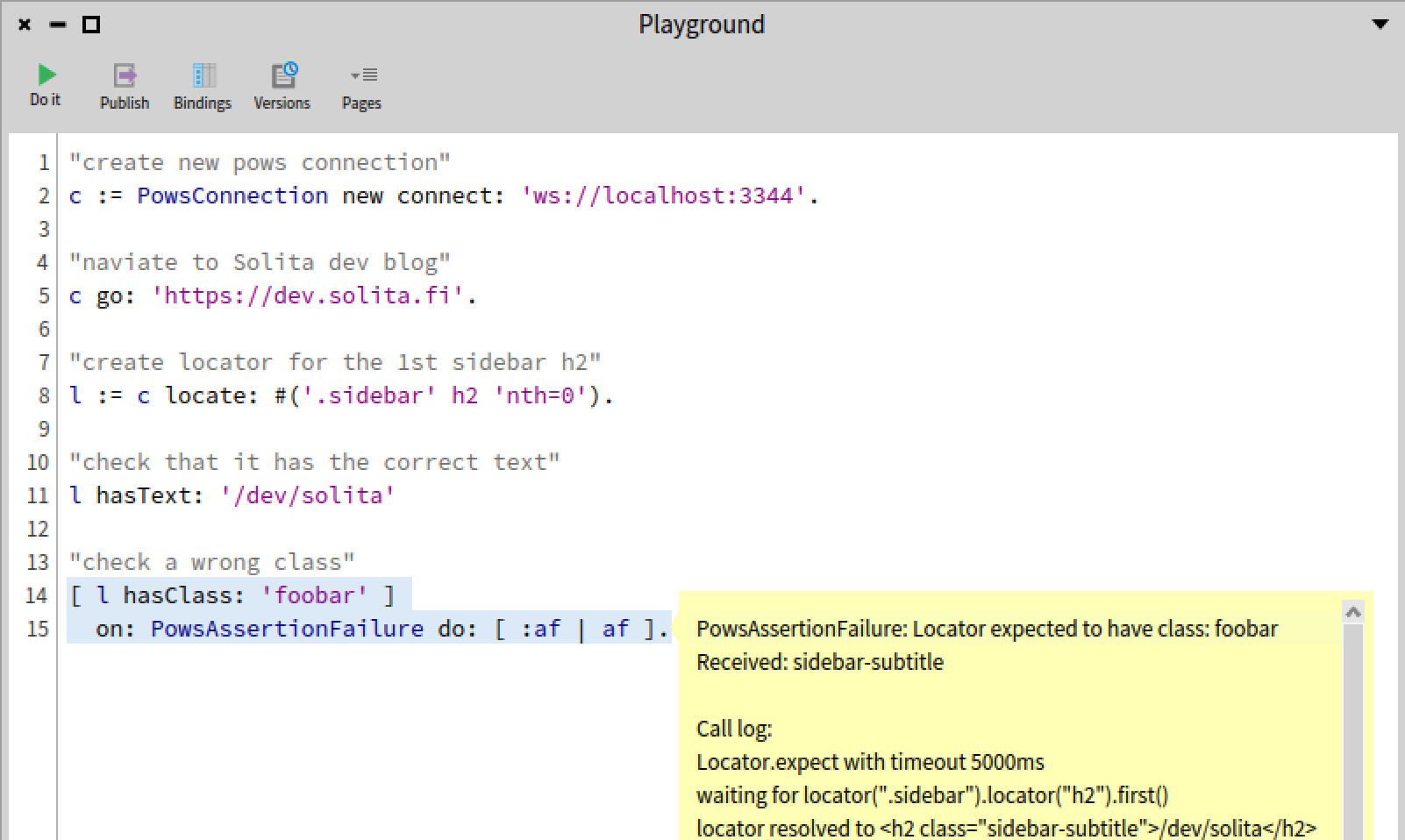Playwright is a great tool for browser-based testing. We use it in many of our projects and I personally like it a lot. Unluckily it only supports some niche programming languages like Java, Python, JavaScript, and C#… but does not have support for the OG of OO: Smalltalk.
To rectify this glaring omission, I decided to create my own bindings.
The plan
Obviously, it is easiest to start with one of the existing languages and add a layer on top of that. I wanted to make this as general as possible, so I decided to create a host program that wraps the existing API and exposes the functionality to clients.
JSON is pretty ubiquitous these days and most languages will have either built-in or easily available libraries to handle the format. I considered building an OpenAPI but the stateless nature didn’t seem like a good idea for such a chatty use case… there will be lots of messages going through and a constant connection seemed more appropriate. I still wanted to stay within HTTP tooling so WebSockets seemed like a good fit.
Playwright over WebSocket
After I had the approach selected, the program came about pretty easily and got the name pows for Playwright over WebSocket. It is implemented in Clojure using the Playwright Java bindings. It implements many of the Playwright Locator action commands (like click, fill, check, and so on) as well as the LocatorAssertions (like hasCount, hasClass, hasText, etc) as simple commands that can be invoked with a JSON object.
The protocol is command & response, the client sends a command and waits for the response to it. Commands are processed one at a time.
{"locator": "button.save", "click": 1}
{"success": true}
See a screencast of using Playwright with the websocat
command line WebSocket tool.
Bridging the gap
Once the host program was ready, all that was needed was to create a Smalltalk library that uses it. This library is named pharo-Pows and supports Pharo Smalltalk.
The basic idea of the library is to model a Playwright connection that allows navigating to a URL and a Playwright Locator that represents some element location on the page. The Locator has methods that can be used to manipulate an element or check assertions about it.
 Screenshot of a playground session using the library.
Screenshot of a playground session using the library.
Now that we have the library we need some finishing touches, mainly creating a SUnit
PowsTestCase class that can be used as the superclass of any tests that need Playwright. The class
will handle automatic setup and teardown of a Pows connection for each test method.
With that in place, our test methods look like:
testCounter
self
go: 'http://localhost:8080/examples/counter';
locate: 'div.counter' assert: [ :l | l hasText: '0' ];
locate: 'button.inc' do: #click;
locate: 'div.counter' assert: [ :l | l hasText: '1' ];
locate: 'button.dec' do: [ :b | b click; click ];
locate: 'div.counter' assert: [ :l | l hasText: '-1' ]
Closing words
Smalltalk is a very nice and concise OO language and Pharo is a modern integrated environment for it. Playwright is one of the best tools for programmatic browser testing these days and with Pows it can be made to work with any technology that has support for JSON and WebSockets.
I made these libraries to scratch my own itch as side projects. Hopefully, someone else can also benefit from them.